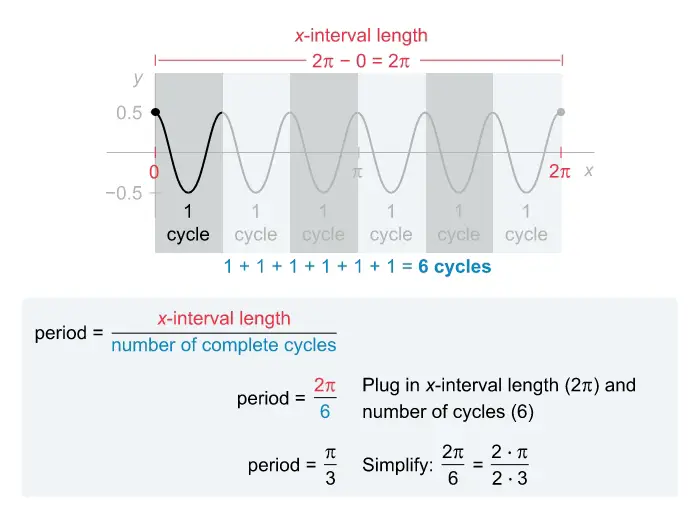Do colleges look at your ACT® scores? Yes, they do! In addition to your high school GPA, extracurricular activities, and personal essays, ACT scores may be taken into account by many elite colleges and Ivy League institutions during the evaluation of your application.
Even with a growing number of colleges adopting a test-optional approach, students still have the choice to include their ACT scores as a factor in college admission or merit-based scholarships. In institutions that adhere to a test-blind policy, like the University of California and the California State University, ACT scores may prove advantageous for students in fulfilling subject requirements or aiding in advising processes.1
Below, we’ll provide tips to help you choose the perfect college and a list of ACT admission scores for the top 25 US colleges.
Why Do Top Colleges and Ivy Leagues Look at ACT Scores?
Here’s four reasons top colleges and Ivy League schools look for your ACT scores:
As A Standardized Metric
Because the ACT is standardized, colleges can use it to compare applicants and help students from different academic backgrounds stand out.
As A Predictor Of Academic Success
High ACT scores are a strong indicator of your ability to handle challenging college coursework and your potential to succeed academically, especially at premier higher education institutions.
To Attract High-Achievers
Top-tier colleges, including the Ivy League, consider a range of factors, including standardized test scores like the ACT, as part of a holistic admissions process to attract high-achieving students and maintain academic excellence.
To Assess Your Eligibility For Merit-Based Scholarships
ACT scores are used to determine merit-based scholarships at some colleges.
Because the ACT is standardized, colleges can use it to compare applicants and help students from different academic backgrounds stand out.
High ACT scores are a strong indicator of your ability to handle challenging college coursework and your potential to succeed academically, especially at premier higher education institutions.
Top-tier colleges, including the Ivy League, consider a range of factors, including standardized test scores like the ACT, as part of a holistic admissions process to attract high-achieving students and maintain academic excellence.
ACT scores are used to determine merit-based scholarships at some colleges.
How Important Is a Good ACT Score for College Admissions?
A good ACT score can be a game-changer for your college admissions. A recent academic study2 conducted at Brown University shows that standardized test scores, like the ACT, predict a student’s potential for academic success in college more accurately than their GPA. That’s why some colleges are reinstating standardized testing as an admission requirement for the 2024-2025 cycle. However, some colleges still maintain a test-optional policy for the current and near-future cycles.
The importance of a good ACT score varies depending on the college and their admissions policies. Some institutions emphasize standardized test scores, while others take a more holistic approach, considering a range of factors beyond just test scores.
For highly selective test-mandatory or test-optional colleges, a high ACT score could positively contribute to a student’s chances of acceptance. However, it is essential to understand that while ACT scores can be a factor in admissions decisions, they are just one of many considerations. Admissions officers also evaluate a student’s GPA, extracurricular activities, essays, letters of recommendation, majors, and other factors when making admissions decisions.
Students with lower ACT scores can boost their chances of acceptance by highlighting their strengths in other areas, such as community service or work experience. Ultimately, the weight of ACT scores depends on the institution’s admissions policies and the student’s career interests. Prospective students should research the admissions policies of colleges they are interested in to determine the importance of ACT scores in the admissions process.
So, what can a good ACT score do for you?
- It can help you get admitted to top colleges across the U.S, which are otherwise highly selective in their admission rates.
- Colleges may sometimes consider ACT scores, along with other factors when making decisions about course placement. If you have a lower ACT score, you could be placed in a remedial course to ensure you have the skills you need to succeed in standard collegiate coursework. A high ACT score can be a positive factor in accessing more advanced courses.
- If you require financial assistance for college expenses, achieving a high ACT score can enhance your competitiveness for specific merit-based scholarships.
What Is a Good ACT Score for Ivy League Schools?
The list below will help you know all about the average ACT score ranges for top colleges.
| Typical Ivy League ACT Scores | |
| School | ACT Score Range |
| Columbia University | 34 – 35 |
| Cornell University | 33 – 35 |
| Dartmouth College | 32 – 35 |
| Harvard University | 35 – 36 |
| University of Pennsylvania | 34 – 36 |
| Princeton University | 33 – 36 |
| Yale University | 33 – 36 |
|
List of Top 25 Schools and
Typical Student ACT Scores |
|
| School | ACT Score Range |
| Massachusetts Institute of Technology 3 | 35 – 36 |
| Stanford University | 34 – 36 |
| University of Chicago | 34 – 36 |
| Johns Hopkins University | 34 – 36 |
| California Institute of Technology | 35 – 36 |
| Duke University | 34 – 36 |
| Northwestern University | 33 – 36 |
| Vanderbilt University | 34 – 36 |
| Rice University | 34 – 36 |
| Washington University in St. Louis | 33 – 36 |
| University of Notre Dame | 32 – 36 |
| University of California, Berkeley* | 30 – 36 |
| University of California, Los Angeles* | 30 – 36 |
| Carnegie Mellon University | 33 – 36 |
| Emory University | 32 – 36 |
| Georgetown University | 32 – 36 |
| New York University | 33 – 36 |
| University of Michigan–Ann Arbor | 31 – 36 |
| University of Southern California | 32 – 36 |
| University of Virginia | 32 – 36 |
| University of Florida 3 | 28 – 33 |
| University of North Carolina at Chapel Hill | 19 – 36 |
| Wake Forest University | 31 – 36 |
| Tufts University | 33 – 36 |
| University of California, Santa Barbara* | 26 – 36 |
Source: 2022-2023 Best National Universities | US News Rankings
*The UC System is test blind and utilizes ACT scores solely for meeting the English subject-matter requirement, course placement, or advising purposes following students’ admission, provided that applicants opt to submit them.
Know if your dream college is test-optional or ACT-mandatory
The 2024-2025 admissions policies of most top 25 schools and all Ivy Leagues have shifted to either test-optional or test-flexible (it is mandatory to submit at least one score: SAT, ACT, AP, or IB). This gives applicants the choice of whether or not to submit their ACT scores with their application. You can check the requirements of your desired school from the lists below.
| College | ACT Policy |
| Brown University | Test-Optional for 2023-2024 |
| Columbia University | Test Blind |
| Cornell University | Test-Optional for 2024-2025 |
| Dartmouth College |
Test-Optional for 2024 Mandatory for Fall 2025 admissions |
| Harvard University | Test-Optional for 2023-2026 |
| University of Pennsylvania | Test-Optional for 2023-2024 |
| Princeton University | Test-Optional for 2023-2025 |
| Yale University |
Test-Optional for 2023-2024 Test-Flexible for Fall 2025 admissions |
| College | ACT Policy |
| Massachusetts Institute of Technology 3 | Mandatory SAT or ACT |
| Stanford University 4 | Test-Optional for 2024-2025 |
| University of Chicago | Test-Optional 2023-2024 |
| Johns Hopkins University | Test-Optional for 2023 – 2026 |
| California Institute of Technology | Test Blind Through 2025 |
| Duke University | Test-Optional for 2023-2024 |
| Northwestern University | Test-Optional for 2023-2024 |
| Vanderbilt University | Test-Optional for 2023-2024 |
| Rice University 5 | Test-Optional for 2023-2024 |
| Washington University in St. Louis | Test-Optional for 2023-2024 |
| University of Notre Dame | Test-Optional for 2024-2025 |
| University of California, Berkeley 1 | Test-Blind |
| University of California, Los Angeles 1 | Test-Blind |
| Carnegie Mellon University | Test-Optional for 2023-2024 |
| Emory University | Test-Optional for 2023-2024 |
| Georgetown University 3 | Mandatory SAT or ACT |
| New York University | Test-Optional for 2023 – 2024 |
| University of Michigan–Ann Arbor | Test-Optional for 2023 – 2024 |
| University of Southern California | Test-Optional for 2024-2025 |
| University of Virginia 6 | Test-Optional for 2024-2025 |
| University of Florida 3 | Mandatory SAT or ACT |
| University of North Carolina, Chapel Hill | Test-Optional for 2023 – 2024 |
| Wake Forest University | Test-Optional |
| Tufts University | Test-Optional for 2023 – 2027 |
| University of California, Santa Barbara 1 | Test-Blind |
Frequently Asked Questions (FAQs)
Even if a college does not make it mandatory to send your ACT scores when you apply, many schools provide the option for students to submit their ACT scores to enhance their admissions applications. Schools may also review your ACT scores when awarding merit-based scholarships. So, if you’re confident about your ACT scores, be sure to submit them when filling out your college admission form.

References
- McDonnell Nieto del Rio, G. (2021, May 15). University of California Will No Longer Consider SAT and ACT Scores. The New York Times. https://www.nytimes.com/2021/05/15/us/SAT-scores-uc-university-of-california.html
- Friedman, Sacerdote, & Tine. (2024, January). Standardized Test Scores and Academic Performance at Ivy-Plus Colleges. Retrieved February 8, 2024, from https://opportunityinsights.org/wp-content/uploads/2024/01/SAT_ACT_on_Grades.pdf
- (2023). Test Optional College List. FairTest. Retrieved November 16, 2023, from https://fairtest.org/school/
- Wood, S. (2023, October 9). Top Colleges That Still Require Test Scores. U.S. News and World Report. Retrieved November 16, 2023, from https://www.usnews.com/education/best-colleges/the-short-list-college/articles/top-colleges-that-still-require-test-scores
- (2023). Stanford University Undergraduate Admission. Stanford University. Retrieved November 16, 2023, from https://admission.stanford.edu/
- (2023). Frequently Asked Questions. Rice University Office of Admission. Retrieved November 16, 2023, from https://admission.rice.edu/frequently-asked-questions#:~:text=We%20are%20test%20optional!,test%20scores%2C%20if%20they%20choose.
- (2023). What is the Test Optional Policy? University of Virginia Office of Undergraduate Admission. Retrieved November 16, 2023, from https://admission.virginia.edu/node/446
- (2023). Application Requirements. Harvard College Admissions & Financial Aid. Retrieved November 16, 2023, from https://college.harvard.edu/admissions/apply/application-requirements
- (2023). Testing Policy. Columbia Undergraduate Admissions. Retrieved November 16, 2023, from https://undergrad.admissions.columbia.edu/apply/process/testing
- To Test or Not to Test. (2023, June 20). Brown Alumni Magazine. https://www.brownalumnimagazine.com/articles/2023-06-20/to-test-or-not-to-test
- Standardized Testing Policy | Undergraduate Admissions. (n.d.). https://admissions.cornell.edu/policies/standardized-testing-policy
- Update To Testing Policy. (2024, February 5). Dartmouth Admissions. https://admissions.dartmouth.edu/apply/update-testing-policy
- Test Optional. (n.d.). Undergraduate Admission | Brown University. https://admission.brown.edu/test-optional#:~:text=Since%20Brown%20is%20test%20optional,of%20the%20application%20this%20year
- Admissions Update for the 2023-2026 Application Cycles. (n.d.). Harvard College. https://college.harvard.edu/about/news-announcements/admissions-update-2023-2026-application-cycles
- Penn Extends Test-Optional Policy Through 2023-24. (n.d.). Penn Admissions. https://admissions.upenn.edu/blog/penn-extends-test-optional-policy-through-2023-24
- Standardized Testing | Princeton Admission. (n.d.). https://admission.princeton.edu/apply/standardized-testing
- Standardized Testing Requirements & Policies | Yale College Undergraduate Admissions. (n.d.). https://admissions.yale.edu/standardized-testing
- First-Year Applicants. (n.d.). College Admissions. https://collegeadmissions.uchicago.edu/apply/first-year-applicants
- International Applicants : Stanford University. (n.d.). https://admission.stanford.edu/apply/international/index.html#:~:text=Is%20standardized%20testing%20(ACT%2FSAT,the%20hands%20of%20the%20applicant.
- Standardized Tests – Test-Free Through 2025. (n.d.). Undergraduate Admissions. https://www.admissions.caltech.edu/apply/first-year-applicants/standardized-tests
- What We Look For – Duke Undergraduate Admissions. (2023, August 14). Duke Undergraduate Admissions. https://admissions.duke.edu/what-we-look-for/#:~:text=Take%20the%20SAT%20or%20ACT&text=We%20recommend%20that%20a%20student,for%20admission%20in%202023%2D2024.




